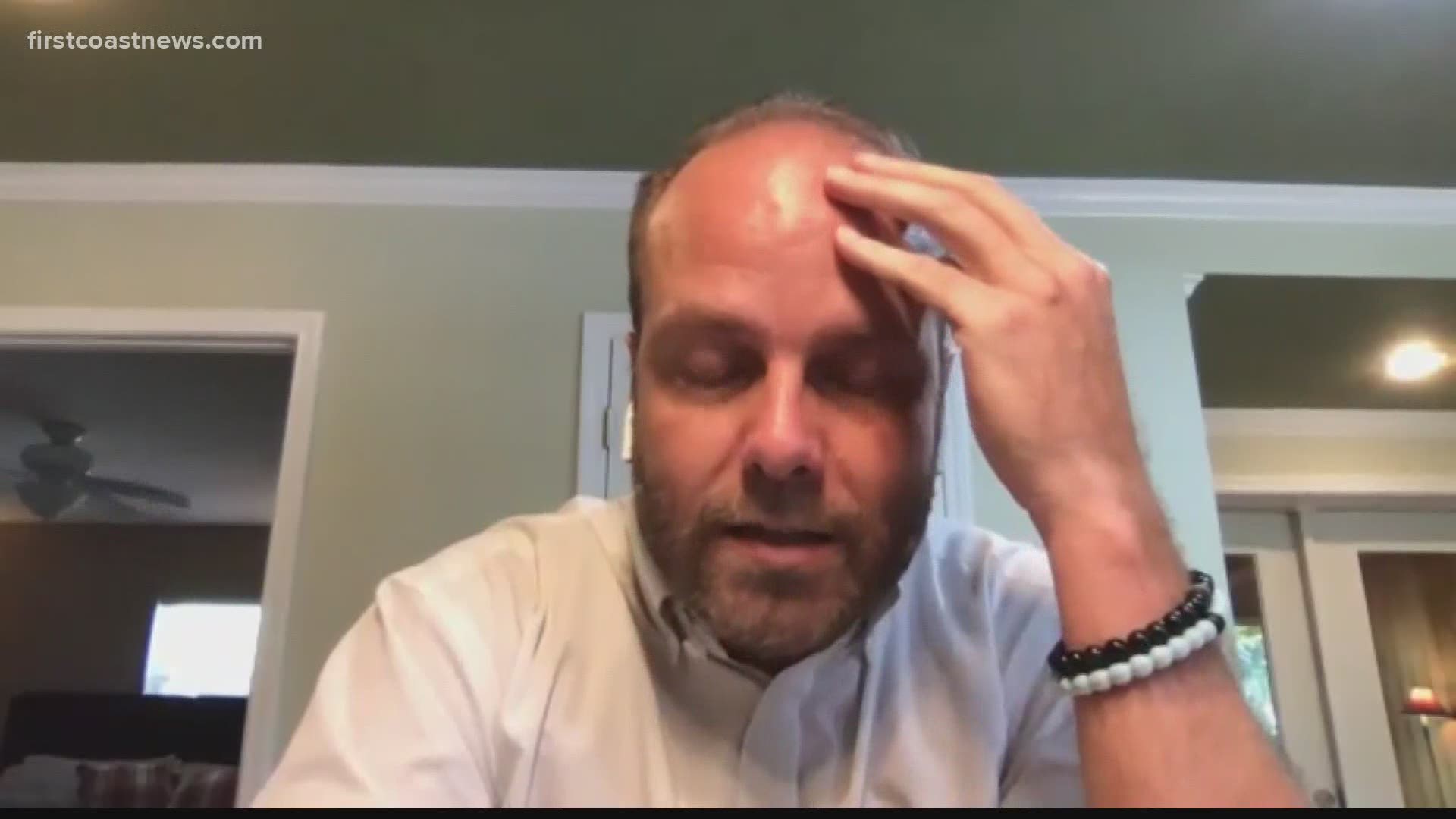JACKSONVILLE, Fla. — We talk a lot about life under lockdown: The confinement, the uncertainty. The way time seems to almost stand still.
But for kids in the state’s juvenile justice system, those realities are even more profound.
COVID-19 protections designed to keep kids safe may actually require some of them to serve longer in detention – and keep them even more isolated.
“The clock is ticking,” says Ben Subercaseaux, whose 17-year-old son has been at the Duval Regional Juvenile Detention Center in downtown Jacksonville since late June. “To sit there as a kid and just not know and not get any updates and just be on a wait list, that’s crazy.”
His son, who confessed to a serious crime, took a plea deal -- two to six months at a non-secure facility. By law, he’s required to stay at the detention center until a bed opens up – something Subercaseaux and his ex-wife Keller Walling was told would take about two weeks.
“My son’s been there 31 days,” Walling said (on July 27).
The COVID-19 pandemic has upended the entire criminal justice system. Visitation has been suspended; transfers slowed to a crawl. Now, with a tripling of COVID-19 cases at the Duval facility in late July, his parents say, their son is essentially on lockdown.
“I would have never put my son in the position to be in solitary confinement ever or in a high security facility 30-plus days,” says Walling. “That's not what we agreed to. And I'm sure that goes for many, many, many children in that facility.”
A Department of Juvenile Justice spokesperson insists the kids are not on lockdown or solitary confinement. Instead, those who test positive or are awaiting results are kept in medical isolation.
“Lockdown is when all youth are restricted to their rooms,” Amanda Slama told First Coast News. “Medical isolation, in this instance as it relates to COVID-19, is when a youth is placed in a separate mod or area of the detention center from the rest of the youth.”
For Subercaseaux, it’s a distinction without a difference. He says his son who struggles with anxiety and depression called earlier this week, frantic.
“When this isolation hit, that was it,” he says. “He was extremely panicked. And that's kind of set the panic off with his mom and I.”
Because the detention center is considered an intermediate step toward placement in a program, the time there does not count toward a juvenile’s sentence.
“My son said there's kids in there that have been in there for three, four months already,” says Subercaseaux. “And then they leave, and then they have to go to their program -- and none of those four months counts?”
“How is that even legal?” adds Waller. “That’s insane.”
First Coast News asked DJJ the average length of stay for inmates now compared to pre-COVID. According to an agency spokesperson, as of June the average length of stay at the Duval facility "is around 15 days. To provide some perspective, in FY 2018-2019 [it] was 18 days."
Waller also worries that her son, who takes medicine for mental health issues, has stopped taking it and is not being required to.
“To make a judgement that he abruptly should not be given medication that a top Atlanta psychiatrist prescribed, who's seen him for ages, who knows all the ins and outs of our family dynamics and his background and mental health -- for someone to make a different judgment call in five minutes? There's no words for it. It’s just unbelievable.”
Between the uncertainty and the isolation, Keller says she fears for her son’s safety.
“I’m constantly waiting for a call is something going to happen to him,” she says. “But this is just so much more than just my son. He's not more special than any other child there. He's no different than any other child there.”
Subercaseaux agrees. “Of course, it's our son, but this is for all the kids out there.
Basically, we're just trying to raise as much awareness about what's going on, and let other people know that this is going on with these kids in there.”

